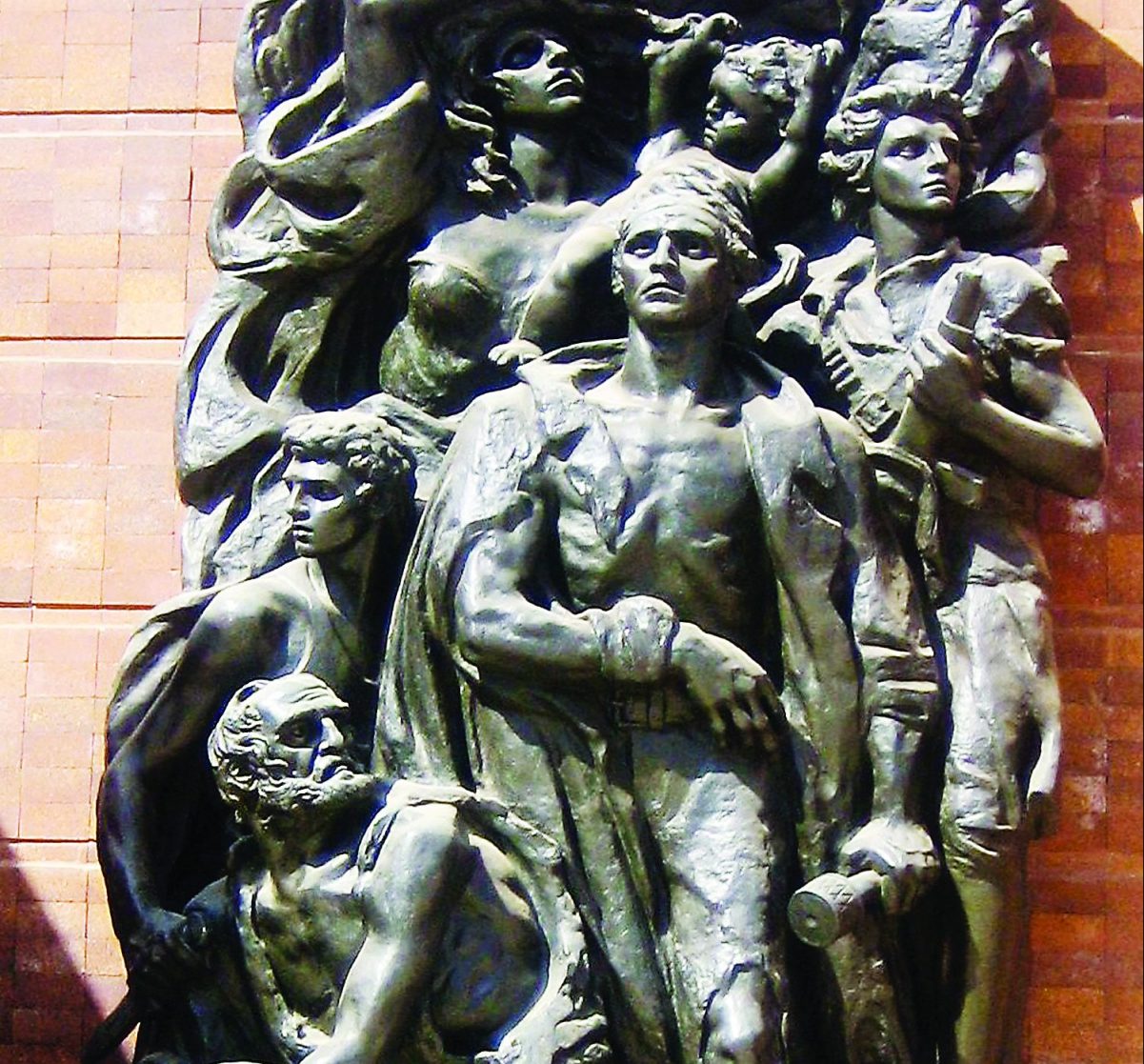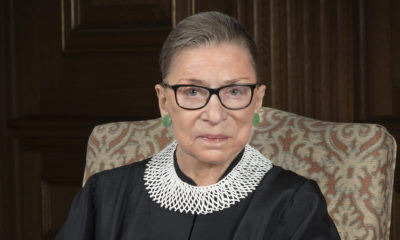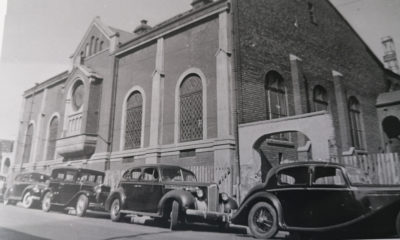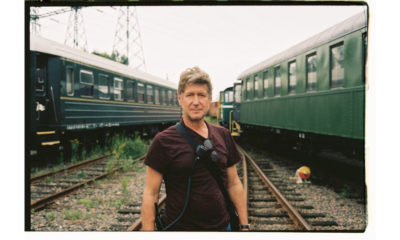
Featured Item

The vital relevance of our past to the present
Published
3 years agoon
By
Jordan MosheHistory reverberates through the present, and the way our memories are formed depends on how we perceive our past.
“We’ve been made increasingly aware of the extent to which the past is present in our physical landscape, our political discourse, and civic life,” said Shirli Gilbert, professor of modern Jewish history at University College London.
“It’s become a subject of heated debate. What goes on when history enters the public realm?”
Black Lives Matter, Rhodes Must Fall, and similar events have shown the extent to which the past persists, posing questions about what happens when history enters the present public space.
Together with Jonathan Jansen, professor of education at Stellenbosch University, Gilbert unpacked the facets of collective memory in a webinar hosted by the Johannesburg Holocaust & Genocide Centre last week.
“Philosopher Maurice Halbwachs suggested that memory is a social process, that even our personal memories are shaped by larger social dynamics,” Gilbert said. “He distinguished between history and memory, arguing that the former aims for universal truth, whereas the latter is an understanding of the past shaped by needs and desires that don’t always align with the truth.”
This isn’t to say that memory is wilfully inaccurate, Gilbert stressed, but that it’s driven less by a faithful documentation of the past than by the need to find a way to tell a personal story in the present.
“Memory isn’t an inevitable process but formed through a selective process of viewing the past and often shaping it with our present needs and interests,” she said. “We pick what we want to memorialise and cast in bronze. This is neither good nor bad, but it’s entirely unavoidable.”
The Holocaust is a particularly challenging area where memory is concerned, remembered differently by various people over time whether they lived through it or not.
“Holocaust memory is a contested affair,” said Gilbert. “Questions over how it should be remembered have varied across time and groups, and there is very little agreement about what meaning should be drawn.”
Different approaches to commemorating the Holocaust are evident in the variety of ways in which it is presented in museums globally, Gilbert said.
“They remember the past in different ways,” she said. “Official memory in Israel was torn between the need to remember and the desire to forget.”
In 1948, Israel strove to do away with the image of the defenceless Jew in the diaspora, but the Holocaust had proven the Zionist argument that without a state, Jews would always be vulnerable.
“This posed a real challenge of how to narrate the past,” said Gilbert. “In early years, you see Israel’s Holocaust commemoration making heroism a vital part of the story, emphasising rebirth. The Holocaust is placed on a continuum of Jewish life before and after, and Israel becomes part of that narrative.”
The American approach differed considerably immediately after World War II.
“There was a conscious decision by American Jewish leadership to avoid speaking about what had happened to avoid drawing attention,” she said. “Jews were emigrating to the United States, and it was better they didn’t draw attention to themselves.”
This turned around in the 1960s, but where Holocaust memorials and museums were built, their motivation differed greatly.
Said Gilbert, “The main themes were American ideals. Liberty, pluralism, and democracy were placed at the centre. They preserved American ideals and encouraged Americans to realise their own idealised reasons for being, providing a way through which to mediate the past.”
“It’s neither good nor bad, but it’s inevitable. Grappling with the past involves stepping back and untangling the relationship between history and the way it’s narrated in the present.”
According to Jansen, the situation is equally complex in South Africa.
“I’m often puzzled by the way in which South Africa is at times obsessed with memorials, be they buildings or statues,” he said. “Since 2015, we’ve watched how people have responded to dealing with their past through interacting with these memorials.
“Before 2015, we were aware of statues like Rhodes, but we’d just walk past them on campuses. Suddenly students are throwing excrement at it, it sets off probably the most violent episode in the history of higher education here, and calls for a decolonisation of the university space.
“Why did a statue become such a sudden obsession?”
In the weeks that followed the Rhodes-statue incident, students took to attacking anything that resembled the statute, whether they were aware of its meaning or not. Jansen said that memorials for horses which served in the world wars were attacked in Uitenhage; King George’s bust was targeted in KwaZulu-Natal; a painting of Boer riders was vandalised (in spite of being the work of a progressive black artist); even a statue of Gandhi in Johannesburg was targeted.
“How does it happen that the Boer rider and Gandhi are attacked as part of the same movement?”, said Jansen. “Invisible memorials suddenly became visible, and are met with violence. It shows how South Africans deal with visible memory of a very present past.”
Jansen believes that the attack on the Rhodes statue was a proxy for deep discontent in post-apartheid society.
“I don’t think it actually had to do with Rhodes,” he said. “No one was troubled by the statue for decades. Students were gatvol with a corrupt government and rampant inequality. The attack wasn’t about the statue but what it represents institutionally, coupled with lashing out because a democratic promise of 1994 wasn’t kept.
“The indiscriminate nature of the attacks reflects a fatal disconnect between politics and pedagogy. You cannot even ask how the statues can be repurposed, something I tried to discuss with students. There was no appetite at all, and thus no place for learning – they wanted to see it burned.
“It’s an extremely dangerous thing regardless of politics if you cannot think, especially at a university.
The politics of memory in South Africa are highly selective and contradictory, Jansen says.
“Rhodes’ statue came down, but when discussions about renaming the university went ahead, the senate decided to keep the name because of brand value,” he said. “If the principle at stake is that it is intolerable to have Rhodes remembered so prominently, why is the name being kept?
The Rhodes scholarship is another example.
“Some students who were at the head of the protest were the same ones pleading to be funded to study at Oxford with a Rhodes scholarship,” said Jansen. “This makes no sense. If this is a principle, there must be consistency. You cannot pick and choose.”










